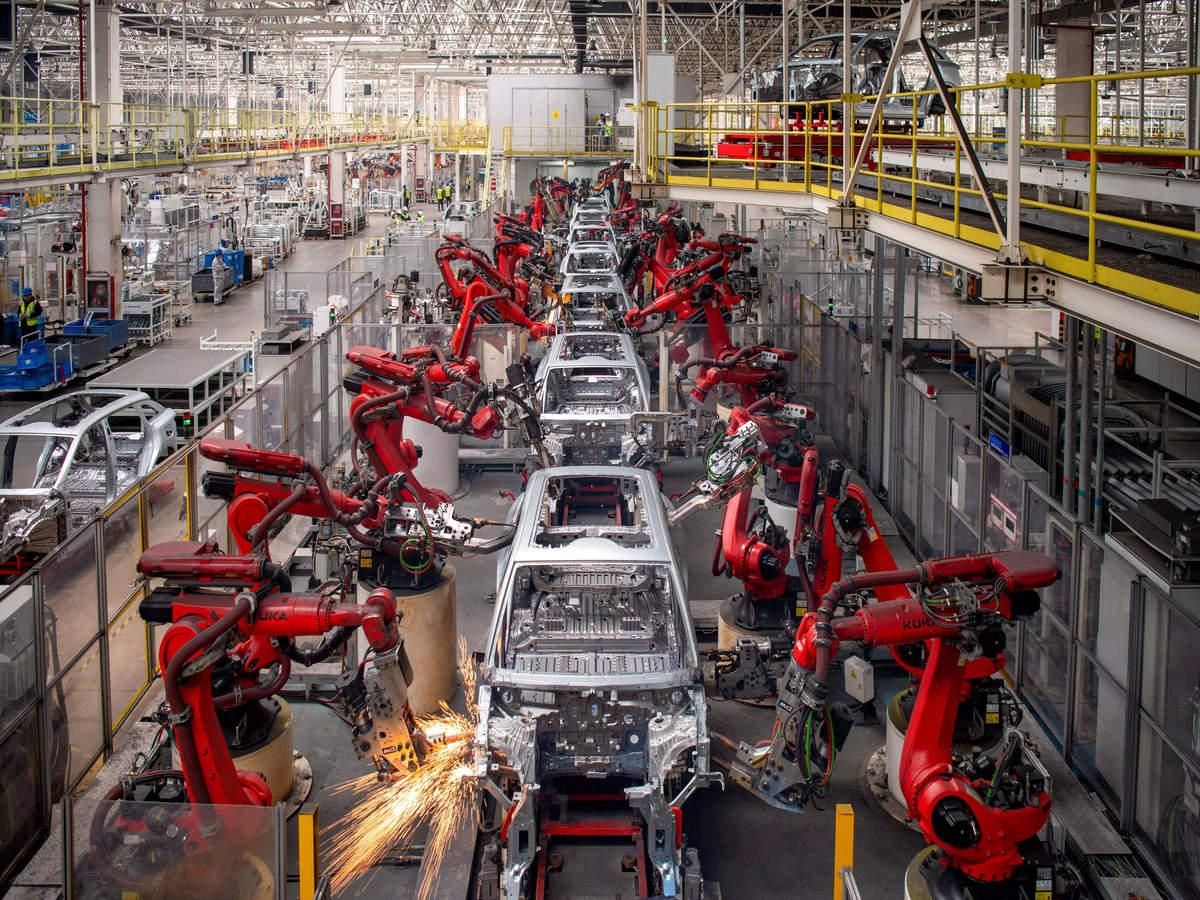The global auto manufacturing industry has been hit hard by recent disruptions in the supply chain, affecting everything from production timelines to the cost of raw materials. As manufacturers scramble to adapt to these challenges, the ripple effects are being felt across the globe. This article delves into the core issues currently plaguing the auto industry, such as semiconductor shortages and rising material costs, and explores how companies are strategizing to mitigate these impacts.
Semiconductor Shortages: A Crippling Blow to Production
The Heartbeat of Modern Vehicles
Semiconductors have become the backbone of modern vehicles, essential for everything from engine management systems to in-car entertainment. However, the recent unprecedented demand for consumer electronics has led to acute shortages of these crucial components. The scarcity is compounded by the fact that auto manufacturers compete with tech companies for the same chips, leading to significant production delays. Automotive giants like General Motors and Toyota have had to slow down production and, in some cases, halt the manufacturing of certain models. This shortage is well-documented in reports by Reuters and Automotive News, which provide ongoing coverage of how the crisis is unfolding.
Escalating Costs of Raw Materials
The Price of Keeping the Wheels Turning
The cost of raw materials such as steel, aluminum, and plastics has surged, driven by global supply chain disruptions and increased demand. These materials are fundamental in car manufacturing, impacting everything from the vehicle’s body to its interior components. The rise in prices is squeezing profit margins and forcing manufacturers to make tough decisions about price adjustments and product features. Industry analysts on Bloomberg and MarketWatch offer insights into the trends in raw material costs and their implications for the auto industry.
Adaptive Strategies by Manufacturers
Innovation and Flexibility in Response
To combat these unprecedented challenges, auto manufacturers are adopting innovative strategies. Some are redesigning vehicles to use fewer semiconductors, while others are securing long-term deals with chip producers to ensure a steady supply. Companies are also exploring alternative materials and local suppliers to circumvent global shortages. These adaptive measures are crucial for maintaining production lines and managing costs. Detailed analyses of these strategies can be found through industry-specific resources like Automotive Manufacturing Solutions and The Manufacturer.
The Future Outlook: Resilience and Recovery
Charting the Path Forward
As the industry navigates through these turbulent times, the focus is on building resilience against future disruptions. This includes investing in technology to improve supply chain visibility and flexibility. Manufacturers are also advocating for stronger government support and international cooperation to stabilize the supply chain. The long-term outlook remains cautiously optimistic as the industry learns from the current crisis and strengthens its defenses. Ongoing developments and forecasts are regularly updated on platforms like Forbes and The Financial Times, providing a broader economic perspective on the auto industry’s future.
As the auto industry pushes forward, its ability to innovate in the face of adversity will define the next era of automotive manufacturing. Embracing digital transformation, enhancing supply chain resilience, and fostering sustainability are pivotal. Automakers are increasingly investing in digital technologies such as blockchain for more transparent and efficient supply chain management, and AI-driven analytics to predict and mitigate potential disruptions before they escalate.
Long-Term Implications for Global Markets
Adapting to a Shifting Economic Landscape
The ongoing supply chain issues offer a crucial lesson in economic interdependence and the need for diversified sourcing strategies. Automakers are reassessing their global footprint and supply chains to reduce reliance on single sources and geographic areas. This shift is likely to spur growth in emerging markets that can offer new capacities and capabilities, providing a more balanced global supply chain network. Analysis from global market experts on sites like CNBC and Business Insider continues to track how these strategies are reshaping the global car manufacturing landscape.
Sustainability and Ethical Manufacturing
A Pivot Towards Greener Production
The crisis has also accelerated the industry’s commitment to sustainability. Facing pressures not only from supply chain disruptions but also from consumers and regulatory bodies, automakers are rethinking their material usage and energy consumption. This includes greater investments in recycling materials and adopting more energy-efficient manufacturing processes. Discussions on sustainable practices in auto manufacturing are often highlighted in publications like Green Car Reports and Environmental Leader, which explore the intersection of environmental stewardship and industry practices.
Technological Innovation and Supply Chain Management
Leveraging Tech to Forge Ahead
Finally, technology continues to play a transformative role in how car manufacturers respond to and recover from supply chain disruptions. From using advanced analytics to forecast demands more accurately to deploying robots and automated systems to enhance production efficiency, the industry is leveraging technology not just to survive the current crisis but to thrive in its aftermath. Future-focused insights can be explored through tech-centric platforms like TechCrunch and Wired, which discuss innovations within industrial operations.
Conclusion: Driving Forward with Resilience
In conclusion, while the global supply chain disruptions have presented significant challenges, they have also acted as a catalyst for change and innovation within the auto manufacturing industry. By embracing new technologies, diversifying supply sources, and committing to sustainability, the sector is not only addressing its immediate challenges but is also preparing for a more resilient and dynamic future. As the industry continues to adapt and evolve, keeping abreast of the latest developments through credible sources will remain essential for anyone involved in or affected by the auto manufacturing sector. This ongoing adaptability and proactive approach will define the industry’s path forward in an increasingly complex global market.

